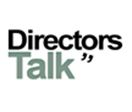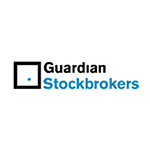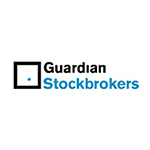The Times
Trying times, but they think they’re up to it: Heineken is hoping to convert its sponsorship of the Rugby World Cup into a rebound in U.K. sales after suffering a high single-digit fall in volumes in Britain during the first half of the year.
Greek factories slow to crawl as capital controls bite: Five weeks of capital controls in Greece have plunged the country’s manufacturers into crisis. A collapse in new orders and supply problems caused by restrictions on bank transfers and withdrawals sent factory activity plunging to its lowest level on record last month. Markit’s purchasing Managers’ index dived from 46.9 to 30.2, where any reading below 50 indicates contraction.
China’s crash throws up rich pickings for HSBC: HSBC has made more than a billion dollars from buying and selling shares in a half-year for the first time, boosted in large part by the Chinese stock market crash.
Harsh sentence is warning to other crooked bankers: Lawyers said that the 14-year sentence handed to Tom Hayes pointed to much harsher treatment for crooked City bankers in future.
Bitcoin tycoon’s ‘virtual padding’: Investigators in Tokyo have accused the former head of the Mt.Gox bitcoin exchange of padding accounts at levels far beyond the $1 million described on his arrest warrant.
Iran promises to pour its oil on troubled waters: Oil prices slid to their lowest level in more than six months after Iran indicated that it would boost production as soon as sanctions against it were removed.
Mirror swaps passes with Ashley and Newcastle United: The publisher of the Daily Mirror has agreed a pair of commercial deals with Mike Ashley’s Newcastle United and his clothing chain, Sports Direct, at the same time as the paper has won a series of exclusive interviews with the football club’s leading figures.
The Independent
Greek companies worth 85% less than they were in 2007 as country’s stock exchange re-opens: The re-opening of Greece’s stock exchange after five weeks sent the market into one of the biggest single-day nose dives in the history of stock market trading, leaving Greek companies worth 85% less than they were in 2007.
RBS: George Osborne begins sale of taxpayer stake in bank: Eight years after the dawn of the global financial crisis the sale of the British state’s 80% stake in the Royal Bank of Scotland has begun, the Treasury have announced.
EY: Firm says it will not longer consider degrees or A-level results when assessing employees: One of Britain’s biggest graduate recruiters will no longer consider degree or A-level results when assessing potential employees.
Financial Times
ValueAct takes stake in Smiths Group: ValueAct, the U.S. activist hedge fund led by Jeff Ubben, has emerged as a shareholder in Smiths Group, just days after revealing it is the largest investor in another staple of U.K. industry, Rolls-Royce.
Chief Executive plays down HSBC’s pivot to Asia strategy: The bank’s Chief Executive talked enthusiastically about how it would redeploy some $200 billion of balance sheet capacity into faster growing markets in Asia and the Pearl River Delta region of southern China in particular.
Shire buys U.S. eyecare business for $300 million: Shire has strengthened its move into eyecare with the $300 million acquisition of a U.S. company developing a treatment for conjunctivitis.
Promontory suspended for indefinite period over StanChart work: New York’s top financial regulator has issued a stinging rebuke to Promontory Financial Group, the influential consulting firm, ordering it to suspend business for an indefinite period for whitewashing a 2011 report on sanctions violations by Standard Chartered, the U.K. bank.
GSK rehires suspected China whistleblower: GlaxoSmithKline has rehired a former senior Chinese employee who was suspected of being the whistleblower behind bribery allegations that led to a £297 million fine for the U.K. drugmaker in China.
Auditors go high-tech to win new business: Auditors have a newfound zest. Rapid developments in digital technology and new rules requiring large companies to invite bids for auditing work at least once a decade have forced accounting firms to refocus on winning business.
HSBC agrees Brazilian sale for $5.2 billion as profits rise: HSBC said it has agreed to sell its Brazilian business for $5.2 billion, as Europe’s biggest bank by assets announced a 10% rise in profits for the first half of the year that comfortably beat analyst expectations.
Industrialist walks away from buying Tata’s Scunthorpe steel plant: An Anglo-American industrialist has walked away from buying a U.K. steel plant, saying its 6,000 workers were “being led to the slaughterhouse” by Ministers’ failure to tackle energy costs and Chinese imports.
Brazilian prosecutors arrest former Lula aide in Petrobras probe: Brazilian prosecutors on Monday alleged that José Dirceu, a former Chief-of-staff to ex-President Luiz Inácio Lula da Silva, was one of the masterminds of a massive corruption scheme at state-owned oil company Petrobras.
Pimco probed by SEC over Total Return ETF: Pimco, the asset manager struggling with outflows, is under investigation by the Securities and Exchange Commission over how it valued securities and whether it misled investors.
Allianz leads autobahn service station buyout: An Allianz-led consortium has bought Germany’s leading chain of autobahn service stations from Terra Firma, the British buyout group owned by Guy Hands, in one of the most expensive infrastructure deals since the crisis.
China concerns bring Apple down to earth: Apple’s share price took a 2.5% hit on growing investor concerns about its growth in China, in a glum Monday for tech stocks that also saw Twitter fall to a new low.
Lex:
Mapping: Here and now: This long-expected sale cements Nokia’s focus on networks. Here provides location data, maps and real- time updates to three types of customer: carmakers, industrial users (FedEx, UPS and SAP) and consumer companies (Microsoft, Samsung, Baidu and Facebook). Revenues come from sales of map data licences. Carmakers generate more than half of Here’s revenues. Its main competitor is TomTom (which supplies Apple’s maps). Google has its own, but relies on TomTom for maps outside the U.S. Here has had annual revenues approaching €1 billion in recent years, but makes operating losses. It has invested heavily to create accurate three-dimensional maps and built a means of gathering anonymised real-time data from devices such as car sensors and smart phones. Continued investment is needed, so profits are not expected soon. However, the three premium German carmakers did not buy Here to make a profit. They plan to turn it into an independent consortium offering open access to other customers. The deal secures access to the map assets, but could also encourage other carmakers to join and ideally share their connected car sensor data. More information would create a rich data source for carmakers to use for add-on services. Ultimately, rich and accurate data are also needed to enable self-driving cars. The price is in line with TomTom’s value, 2.5 times enterprise value to sales, says UBS. Here provides a test case to map a co-operative route between three traditional competitors. Clear roads ahead, then.
RBS: about time, too: The U.K. government has finally started selling down its 78% stake in Royal Bank of Scotland. It should have started the process years ago. The shares closed at 338p on Monday. In August 2013 they were trading at around 340p, and in the intervening period there have been no dividends. About £31 billion of U.K. taxpayers’ money has been tied up for two years in the bank, with no return. The public would have done better had its money been in a savings account, despite the woefully-low interest rates on offer. The government, it seems, is not a good allocator of investment capital. An earlier sale would have been beneficial all around. Lloyds Banking Group shares have risen 11% since the government started selling down its stake in September 2013. In the same period, RBS has lost 7%. True, RBS has been in a much weaker position than Lloyds. But the government stake, and the real (and realised) threat of political intervention in the bank has been a drag on the share price. One of the reasons that the government may have been holding back is the risk of being seen to sell at a discount to the “in” price of 502p. But this argument was always a red herring. The in price is irrelevant. The government did not invest in the bank in order to make a profit, it invested in order to avoid the consequences of a collapse. With the threat of a collapse gone, there was little reason to hold on. As any reader of the small print of investment literature knows, past prices are no guide to the future.
Greek banks: Grecian burns: The banks fell 30%. No surprises there: they are hostages to a crisis that is not of their making. Just as grim were the falls in the shares of metal bashers that supply the construction sector such as Corinth Pipe Works. Markit data indicating factory orders had dropped are a reminder of the broader economic fragility. Greek stock market regulators told the banks to try to reassure the markets. The resulting announcements only went so far. Alpha, Eurobank, National B ank of Greece and Piraeus — accounting for a quarter of the Greek stock market’s capitalisation — showed that the EU’s July stop-gap bailout package has restored a semblance of depositor confidence. Eurobank, NBG and Piraeus said outflows had stopped or were little changed since end-June. Instead, by way of an olive branch, they highlighted their end-March common equity tier one capital ratios. These have limited meaning given that the banks say they have no clue what losses their capital may be called upon to absorb. That much was clear from their inability to provide guidance on their non-performing — or bad — loans. The chorus repertoire seems to be stuck on Nobody knows the trouble I’ve seen, showing that, after three bailouts, Greece’s creditors do not grasp the urgency of reforming, rebuilding and recapitalising the banks. In the latest bailout there was talk of €25 billion to recapitalise the banks. It is time to turn vague promises into lasting change.
Lombard:
IFR award imminent: They come out with the funniest things don’t they? Not toddlers — they never say anything amusing to anyone other than their besotted parents. No, Chancellors, I mean. The latest zinger emanating from George Osborne is that he aims to “eclipse” Thatcherite privatisations in 1991 with £32 billion of asset disposals this financial year. But selling bank shares the state wound up owning by accident lacks true Thatcherite radicalism. The current government holds 78% of RBS because the last government but one was compelled to bail out the bank or risk presiding over the collapse of the U.K. financial system. The frontiers of the state are merely rolling up and down like Austrian blinds. Curious, meanwhile, that the Chancellor should start heeding the advice of U.K. Financial Investments after years of ignoring the agency, even though the market level of RBS shares is still well below the government’s “in price”. Could it reflect the exiling of the Lib Dems, erstwhile coalition partners, to the political wilderness in May? So nice to get sole league table credit for a deal, as the four bookrunners to the RBS placing might wistfully agree.
SuperStu has much to do: The similarity between Harold “SuperMac” MacMillan and Stuart Gulliver might at first appear slim. But both are decolonisers. The aristocratic Tory prime Minister led the U.K.’s postwar withdrawal from Africa. Mr Gulliver, a Chief Executive with humbler roots, is presiding over the contraction of HSBC’s imperium, marked on Monday by the sale of Brazilian operations for $5.2 billion. The sale of Brazil reduces HSBC’s dominions from 89 when Mr Gulliver started in January 2011 to 70. The final target is 50-60 countries with 85% of world GDP. Mr Gulliver is right to focus HSBC crisply on Asia and replace a risky federal structure with central control. But a slowdown in the region and proliferating conduct issues look set to dull investors’ pleasure at delivery. According to S&P CIQ, shareholder returns have been a negative 13% since the ex-trader took over.
The Daily Telegraph
Brent crude drops below $50 threshold, hitting six-month low: Brent crude crashed briefly through the $50 per barrel barrier, marking a new six-month low for the benchmark amid continuing worries that the world is producing too much oil.
HSBC could still leave U.K. despite bank levy tax changes: HSBC could still leave the U.K. despite tax changes designed to make London a more welcome home for the bank, its Chairman and finance Director said, as they consider moving the giant bank’s headquarters to Asia.
Western sanctions are hitting Russia harder than anyone realised: Sanctions linked to the Ukraine crisis could end up costing Russia 9% of its gross domestic product, the International Monetary Fund has said.
Cracking China just got harder for Air bnb as rival Tujia lands $300 million funding: Tujia, China’s version of Air bnb, has raised $300 million of investment that could make it harder for its San Francisco rival to get a foothold in the world’s second biggest economy.
Intertek shares jump as investors welcome 17% profit hike: Shares in product-testing firm Intertek soared by more than 11% in morning trade after its half-year operating profit jumped by 17.1% to £153.7 million.
Puerto Rico triggers historic default as austerity spiral deepens: Puerto Rico has triggered the biggest municipal default in U.S. history, risking years of bitter legal warfare with creditors and an austerity “death spiral” with echoes of Greece.
Kraft is recalling cheese slices because people are choking on the wrappers: Kraft is recalling 36,000 cases of individually-wrapped cheese singles because people have been choking on the wrappers.
The Questor Column:
Hold HSBC on Brazil sale: The sale of HSBC’s Brazilian arm is the latest step in a retrenchment that could eventually see the banking giant up sticks and move its headquarters back to Hong Kong. In the shorter term it will reduce risks and strengthen the balance sheet. The U.K.’s largest listed bank has been reversing a policy of global expansion. It had already placed the Brazilian and Turkish businesses on the block following the results of a strategy review in June. HSBC has always struggled to make a profit from its Brazilian operations and it has never really fulfilled its promise as the gateway into what was one of the fastest growing emerging market economies in the world. Analysts from UBS estimate that the disposal will reduce the banks exposure to risky assets by some $37 billion, and the cash will be received when the deal closes before June next year. The bank is also making progress on the Turkish deal with a sale to Dutch group ING for $750 million rumoured. The expansion into Latin America began in 1997 and was followed by it listing shares in the U.S. in 2000 and the $15 billion acquisition of U.S. sub prime lender Household in 2003. HSBC shares peaked at £10 towards the end of 2006 and have since tumbled to 583p per share. The bank’s shares are not particularly expensive, trading on 11 times forecast earnings per share and paying a dividend that yields almost 6%. However, given the uncertainty, they remain a hold. HSBC at 581.3p +1.6p. Questor says “Hold.”
U.S. construction lifts Keller profits: Keller’s revenues have dipped after the global commodity slowdown hit projects in Australia. Keller generates the majority of its revenues from installing foundations and drilling pilings for buildings such as the Olympic Stadium, flood defences in the U.K. and gas projects in Australia. The company has felt some pain from its exposure to work on commodity-related building projects. Revenues in Australia have tumbled by 44% in the six months to the end of June, compared to the same period last year, while profits have more than halved. The U.S. market got off to a slower start due to poor weather earlier in the year. However, building activity is now accelerating as the country increases spending on big infrastructure projects, which call for groundwork engineers. Shares in the FTSE 250 company have performed strongly this year, rising more than 20% to £10.58. In the first six months of the year, pretax profits increased 6% to £34.6 million despite revenue falling 4% to £756 million. Market consensus is for a strong second half of the year, with full year per-tax profits rising to £96.9 million, giving 88p in earnings per share. The company has an unbroken 29-year record of increasing or, at the very least, maintaining the payout. Keller raised the interim dividend this year by 5% to 8.8p per share. Questor highlighted the improvement in trading last time we looked at the shares (Buy, 889p, August 5). However, given the progress and the mixed outlook we downgrade to a hold. Keller at £10.60+2p. Questor says “Hold.”
The Guardian
Former City trader Tom Hayes given 14-year sentence for Libor rigging: Former City trader Tom Hayes has been sentenced to 14 years in jail after becoming the first person to be convicted by a jury of rigging the Libor interest rate.
Greek shares nosedive as manufacturing data reveals economy in shock: The full extent of the damage caused by the Greek crisis was laid bare when the first day of stock market trading after five weeks of economic paralysis saw shares lose a sixth of their value.
Strong pound holding back U.K. exports, says key survey: The strength of the pound is holding back U.K. exports and keeping factory output barely above recession levels despite a rise in activity in the Eurozone.
Serious Fraud Office to investigate firm’s Somali oil contract bid: A company chaired by the former leader of the Conservative party made payments to a Somali government adviser as they were agreeing a lucrative oil contract with the troubled east African country, the Guardian has learned.
Daily Mail
Goldman Sachs admits U.S. fines for mis-selling toxic mortgages could escalate to £3.8 billion: Goldman Sachs has admitted its fine for mis-selling toxic bundles of mortgage debt before the financial crisis could be £1.4billion bigger than previously feared.
North Sea shrugs off falling prices and sees first increase in production in 15 years: Price pressure and cost-cutting can apparently be good for some industries.
Shares boost for Rolls-Royce on hopes U.S. hedge fund which seized 5.4% stake last week will push to slash costs: Shares in Rolls-Royce were among the biggest risers on the London market on hopes that U.S. activist investor ValueAct will instigate a shake-up at the Derby engineer.
Trinity Mirror shares leap 10% as digital revenues climb, and it reveals a first-half net cash position for first time ever: Shares in Trinity Mirror jumped 10% as the newspaper group said it expects to hit profit targets for the rest of the year, with first half results showing digital revenues continuing to grow.
Daily Express
HSBC enjoys a Far East boost: HSBC’s growing exposure to Asia paid off as a strong performance in Hong Kong helped it bank a 10% increase in half-year profit.
Gooseberries lead a berry surge as bakers seek out traditional recipes: Gooseberries are back in cooks’ good books with surging sales driven by our re-discovery of traditional recipes and heritage foods, and hit TV shows like The Great British Bake Off.
Insurance tax hire unfair, say drivers: Nearly nine in 10 motorists believe that a planned tax hike which will push up the cost of insurance policies is “unfair” and will encourage uninsured driving, according to research by the AA.
Fresh fears over China’s economy as markets face another day of falls: Stock markets in China have suffered another day of crashes as fears over the country’s economy deepens.
The Scottish Herald
Saltire Taverns sold in multi-million pound deal: Leisure entrepreneur Billy Lowe has sold his Saltire Taverns business in a multi-million pound deal.
ECS to create 200 jobs: IT consultancy ECS expects to hire around 200 people this year with one quarter of them in Scotland.
PureGym to create 60 jobs in Scotland: Puregym is opening three new sites in Scotland which will create around 60 jobs.
Morrison wins £57 million contract for Scottish Futures Trust: Morrison Construction has won a £56 million contract from Hub North Scotland for a new high school project in Shetland.
Famous Grouse and Macallan distiller Edrington brings Avis on board: Edrington, the Glasgow-based distiller of The Macallan and Highland Park single malt Scotch whiskies, has brought an international brands and marketing veteran on to its board.
The Scotsman
Lowe to stay in leisure industry after Saltire sale: Boutique leisure operator Saltire Taverns has been sold by Billy Lowe in a multi-million pound deal, although the entrepreneur has insisted he is not yet ready to check out of the industry.
U.K. will miss £1tn exports target by 14 years – BCC: The U.K. government is likely to miss its target of hitting £1 trillion worth of exports by the end of the decade by 14 years, business leaders warned.
Fraud commited by Scots trebled in year to £3.3 million: The value of fraud committed by Scottish workers has more than trebled in the past 12 months, despite a sharp fall in the number of high-value cases making it to court.
City A.M.
Recruiter reports an increase in new women on FTSE 350 boards: More women are being appointed to the boards of leading U.K. firms than ever before, according to a new report out this week.
Easyjet crew lift strike action threat: The threat of industrial action at budget airline EasyJet has been averted after cabin crew voted to accept a pay offer.
Fidessa claims small impact of more investment on margins: Fidessa Group said an additional investment it is making in new opportunities is having a “small impact” on its operating margin
Heineken proves a good sport after profits beat expectations: Dutch brewer Heineken is counting on its sponsorship of the Rugby World Cup to help boost sales in the second half after posting better-than-expected profits in the first six months of the year.
Commodities price crash hits Keller Group: Keller Group said it had been hit by a crash in commodity prices, with sales suffering from a slowdown in the Canadian oil sands industry and the Australian mining sector.
Jerky Group and Cruga form beef snacks empire: The Jerky Group has merged with biltong and meat snacks-maker Cruga to create the largest beef snack manufacturer in Europe with combined turnover of around £12 million.
Almacantar to Shell out £550 million on iconic office: Centre Point Owner Almacantar has bought part of Canary Wharf Group and Qatari Diar’s controversial Shell Centre scheme on London’s South Bank, which faced opposition last year for obstructing views of the Houses of Parliament.
Axa Real Estate raises €2.9 billion for its ninth European debt fund: Axa Real Estate Investment Managers said it has raised €2.9 billion (£2.04 billion) for its ninth debt fund, making it one of the largest commercial real estate (CRE) senior loan funds in Europe.




